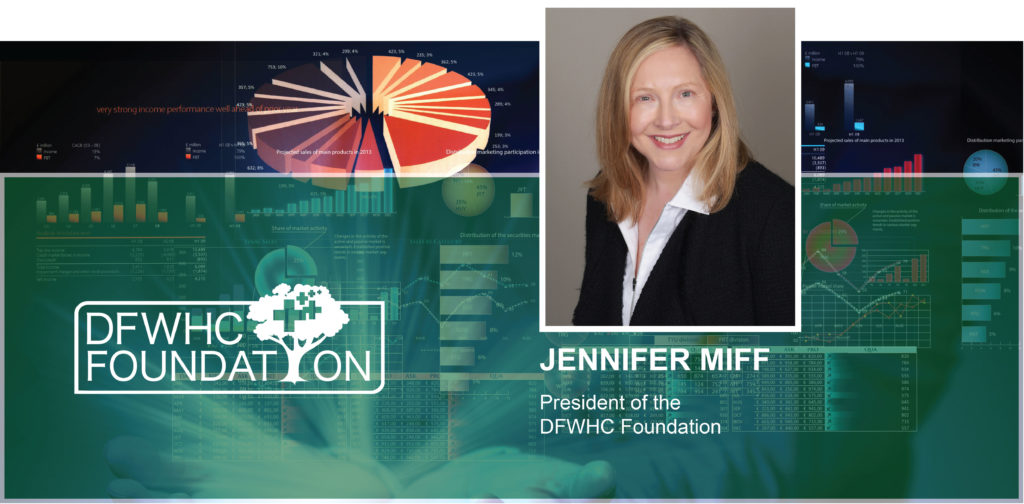Blog – Leverage our MyIQ Analytics’ state data access for learning and grants

Blog by Jen Miff, President of the DFWHC Foundation
The DFW Hospital Council (DFWHC) Foundation has a rich history of supporting patient safety improvements, quality analyses and metrics, and community health use cases through its robust, longitudinal data sets.
A little-known fact, however, is that the DFWHC Foundation also offers subscription-based access plans to the comprehensive state data known as the Texas Health Care Information Council (THCIC). Our academic partners and community-based organizations can benefit from the DFWHC Foundation’s MyIQ Analytics platform access to inpatient and outpatient hospital discharge data from across the state.
Academic partners who already have access to THCIC as a state educational institution or current data subscriber can use the DFWHC Foundation MyIQ Analytics platform to access the full case-level data set to conduct research related to chronic disease hospitalization rates, social disparities in vulnerable populations, and critical community health issues such as fall risks and mental and behavioral health.
This tool is versatile and a great way to empower students with real data to enrich their analytics learning in clinical informatics and statistics. Professors can also utilize the data set to design new tasks and lessons within existing and/or new curriculum and teach students how to conduct analyses on hospital discharge data, such as measuring quality outcomes, market share, and community health statistics.
For community-based organizations, an aggregate-level THCIC subscription can provide valuable insights to support grant applications or board strategies. This data set allows analysis of state-wide data on disease incidence rates, health issues related to social determinants of health, and community health statistics such as suicide or childhood asthma. Access to this data will allow community-based organizations to prioritize initiatives and create better data-driven funding applications that clearly delineate community-based issues and quantify the problem to support grant objectives. Leveraging the DFWHC Foundation’s data after a grant is received, in many cases, can allow for more effective grant outcomes tracking and impact reporting.
We are excited to be able to extend these options to our partners. For more information on leveraging THCIC data in your organization or at one of your community-based partners, please contact Theresa Mendoza, director of data management and research at the DFWHC Foundation, at tmendoza@dfwhcfoundation.org.
